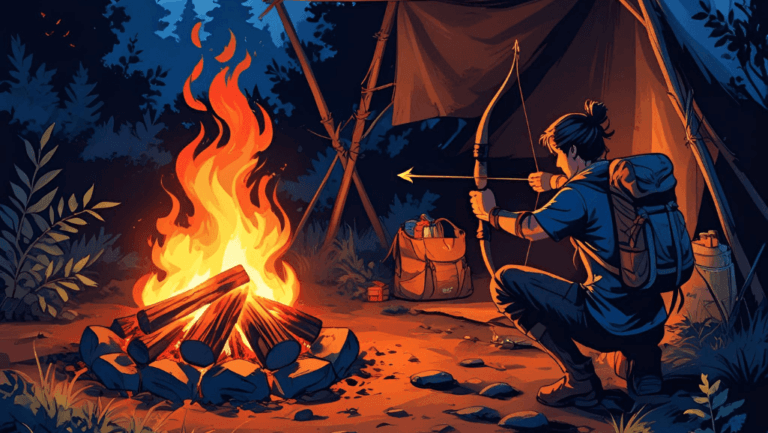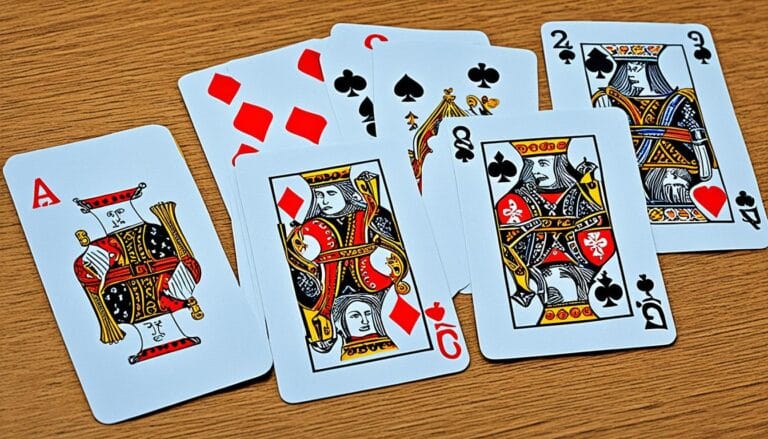Welcome to our guide on becoming a “Sorry!” board game pro. This classic game is great for all ages. You’ll learn the steps, tips, and strategies needed for winning. “Sorry!” has been a hit since 1934. It evolved from Pachisi, an ancient Indian game. how to play sorry game board?
Your goal is to move your pawns across the board and back to safety. You’ll face choices that can change the game completely.
Key Takeaways
- “Sorry!” is for 2-4 players, ideal for family fun nights.
- Win by getting your pawns to the home space with the right dice rolls.
- It’s all about smart moves and planning your strategies.
- There are 11 kinds of cards, each with its own rule or action.
- In 1929, W. H. Storey patented it in the UK. Parker Brothers made it famous in the U.S.
Introduction to the Sorry Game Board
Sorry! was first made in 1934. It mixes luck and strategy, grabbing players’ attention. Now part of Hasbro, this game fits from 2 to 4 players who are 6 and up. Setting up takes between 1 to 5 minutes. But, it’s about more than luck. Counting, thinking ahead, and knowing odds are key. Everyone, young and old, finds it fun to play.
What is Sorry!?
Adapted from Pachisi, Sorry! comes from England thanks to W H Storey & Co. Parker Brothers put it on the map. It’s all about moving your pawns based on the cards you draw. These cards mix things up, keeping the game exciting. Mastery of Sorry’s challenges moves you closer to victory.
The Objective of the Game
By following the Sorry game instructions, the aim is clear. Move all pawns from the start to their houses. Cards can send opponents back, adding to the challenge. A good game plan is key. The deck has 45 cards, each with a special role. These add more fun to the move-your-pawn game.
In 1939, a new way to play was introduced: Point-Scoring Sorry! It puts points at stake, changing how you win. This twist makes the game more competitive.
Game Components and Setup
The Sorry! board game is a classic that brings people together. It’s known for its fun and strategy. Knowing how to set it up and what you need to play is key. Let’s look at the Sorry game board setup and its basic items.
Board and Pawns
The Sorry! board has spaces of different colors and four special start spots. Players get four pawns each in red, blue, green, and yellow. The aim is to move these pawns to the same-colored home spot. You can play with just two people or up to four, which is great for groups of different sizes. Setting up the game is quick, taking only 1-5 minutes usually.
Card Deck
The game includes a deck with 45 cards, but no 6s and 9s. Each card tells you how many spaces to move. They can also let you move backward, switch places with someone, or get to safety. You must draw a 1 or 2 to start moving. The game’s excitement comes from its strategy, like using cards to send others back to the start.
| Component | Details |
|---|---|
| Board | Color-coded with start and home spaces |
| Pawns | Four sets of four pawns in red, blue, green, and yellow |
| Card Deck | 44 cards with movements, excluding 6s and 9s |
| Players | 2-4 players with a setup time of 1-5 minutes |
| Age Range | 6 and up |
These game items and easy setup help players start the fun quickly. Whether you’re with family or friends, Sorry! is always a fun, competitive game to enjoy.
Basic Rules of How to Play Sorry Game Board
Learning to play the Sorry game board starts with the basics. It’s made for 2-4 players, with each player having four pawns in different colors. You’ll try to get all your pawns home from the start, working through the board’s challenges.
Starting the Game
To begin, players pick who goes first. It might be done by age or by chance. They draw a 1 or 2 card to start moving their pawns out. Getting a 2 lets them draw another card for extra action.
Drawing and Playing Cards
During your turn, draw a card and follow what it says. The deck has 11 different types of cards, each doing something special. Remember, you must follow the card’s rules on your turn. If you can’t move, you miss your turn.
If you land on another player’s pawn, they go back to the start. This adds an exciting competitive twist. Players can also find safety in certain zones on the board, helping on their way home.
It’s key to use the board’s special features smartly. By knowing how to play, you can make your moves count. This will lead you to win by getting your pawns home first.
Different Types of Cards and Their Functions
In the game “Sorry!”, the card deck is key. It decides how players move and plan their strategies. Knowing each card and what they do is vital to win and create a solid strategy.
Numbered Cards
There are 45 cards in the Sorry! deck. They include various numbered cards with special actions:
- 1: Move a pawn ahead one space or start a pawn from the “Start” area.
- 2: Move a pawn ahead two spaces or start a pawn from “Start” and draw again.
- 3: Move a pawn ahead three spaces.
- 4: Move a pawn back four spaces.
- 5: Move a pawn ahead five spaces.
- 7: Move a pawn ahead seven spaces or split this move between two pawns.
- 8: Move a pawn ahead eight spaces.
- 10: Move a pawn ahead ten spaces or back one space.
- 11: Move a pawn ahead eleven spaces or swap with an opponent’s pawn, a key move for smart plays.
- 12: Move a pawn ahead twelve spaces.
Special Cards: Sorry! and More
The deck also has special cards. They can change the game a lot:
- Sorry! card: With this, you can move any pawn from ‘Start’ to where an opponent is. Then, you send the opponent’s pawn back to their ‘Start’. Using it wisely can really slow down your foes.
- 2 card: This card’s unique. It lets you move ahead two spaces and draw another card. It’s great for moving fast and planning well.
Knowing how to use these cards is key. From numbered cards to special moves, they all contribute to a good strategy in playing Sorry!
Pawn Movements and Strategies
Learning how pawns move in Sorry is key. You need to know how they go forward and back. You also must understand how to use them wisely against enemy pawns. This is important for winning at Sorry.
Forward and Backward Movement
In Sorry, pawns can go forward or backward depending on what card you draw. Moving forward gets them closer to the end. But sometimes it’s smart to move backward. This can help you not get bumped by others. Remember, there are 11 different cards. Knowing each one is a big help in your game plan.
Jumping and Bumping Opponents
Jumping over pawns in Sorry is allowed. But if you land where another pawn is, you bump it back to ‘Start.’ This is a key move in the game. Choosing when to jump or when to bump is a big part of your strategy.
Using the safety zone wisely can help protect your pawns. It makes it harder for others to send you back to the start. This can increase your chances of winning. Keeping an eye on where you and your opponents stand is very important in Sorry.
Special Moves and Conditions
Learning special moves and game conditions can boost your Sorry! board game skills. These aspects add fun and strategy. They’re vital for winning and knowing the rules of Sorry.
Slides and Safety Zones
In Sorry!, slides are super fun to use. Slide ahead to the next colored triangle when you land on one. This sends your opponents’ pawns back. Not only do you move faster, but you also mess up other players’ plans. There are 16 spaces on each side leading to safety zones.
Once your pawn gets into a Safety Zone, it can’t be moved by others. This makes it safe from being sent back. Staying protected is essential in following the Sorry game instructions closely.
Home and Winning the Game
The main aim is to get your pawns to Home in Sorry! You need to draw the exact number to enter Home. This means planning your moves carefully. Special cards and numbers like “Sorry!” and “11” change the game, testing your strategy.
| Aspect | Description |
|---|---|
| Slides | Move forward on colored triangles, sending opponents back to start |
| Safety Zones | Protected paths for pawns near Home, keeping them safe from opponents |
| Winning | Draw the exact number to reach Home; the first to get all pawns Home wins |
To succeed in Sorry, master slides, safety zones, and smart move choices. Knowing these rules and playing wisely promise a great game.
Advanced Tactics and Strategies
Learning advanced tactics in Sorry! can take your game to new heights. It involves using cards well and placing pawns strategically. This part of Sorry! is for those who already know the game but want to get better.
Using Cards Effectively
Success in the advanced Sorry board game strategy is all about the cards you draw. Each card has its own benefits and limits. A smart player can use cards, like the “7” card, to move with great precision. This way, you can get closer to finishing. Also, using a “Sorry!” card at the right time can really mess up your opponent’s plans.
Positioning Pawns Strategically
Where you put your pawns is crucial in this strategy. Try placing them where they can block or put pressure on your opponents. Guessing what cards others might have and where they might move is key. This allows you to play more offensively and protect your pawns better.
Expert players make sure their pawns cover the board well but are not too close together. They also know when the best time to move a pawn is. Timing moves well can change the whole game in your favor.
Here is a quick summary of some critical strategies:
| Strategy | Description |
|---|---|
| Card Utilization | Using cards like “7” and “Sorry!” effectively. |
| Pawn Positioning | Placing pawns wisely to counter and predict opponents. |
| Spread Out Pawns | Keeping pawns apart to avoid risks. |
Using these strategies together can really change how you play Sorry!. It turns challenges into chances to win.
If you want to dive deeper into the game’s strategies, check out the Sorry game strategy guide.
Team Play and Variations
Changing the rules in “Sorry!” can make it more fun. Adding team play rules and new ways to score points boosts excitement. It keeps players on their toes, looking for new strategies to win.
Team Rules
Playing as a team in “Sorry!” adds a new layer. Each team aims to get all their pawns home, working together. You still follow the usual rules, but you can help each other by moving or bumping each other’s pawns. This change makes working together a key to winning.
Point-Scoring Variation
The point-scoring variation makes “Sorry!” a race. Players carefully choose which cards to play, trying to get their pawns home first. You earn points based on when you arrive home, striving to get the most points. This twist mixes speed with strategy, providing a different challenge.
| Aspect | Team Play | Point-Scoring Variation |
|---|---|---|
| Objective | Collaborate to bring all eight pawns home | Race to accumulate the highest score by getting pawns home |
| Rules | Regular rules with the added ability to move or bump partner pawns | Players manage card hands, discard, and draw strategically |
| Strategy | Coordinate moves for team advantage | Prioritize speed and point accumulation |
New ways to play “Sorry!” make every game session feel fresh. Whether you choose team play or the point-scoring twist, these variations promise hours of fun. They keep the game exciting and loved by all.
Expert Tips for How to Win at Sorry Game
To win at Sorry, you need wise moves and a cool head. It’s important to know common mistakes and good tactics. We’ll talk about how to play well to win.
Common Mistakes to Avoid
- Leaving Pawns on Start Too Long: It’s a big mistake to not get your pawns moving from Start. Try to move with a 1 or 2 early to get ahead.
- Clustering Pawns Together: Don’t keep your pawns too close. This makes it easy for opponents to send them back to Start.
- Ignoring Safety Zones: Don’t forget your Safety Zone. It’s a safe place for your pawns. Using it well can save you from big setbacks.
- Overlooking Card Count: Count the cards to get ahead. Since the deck isn’t huge, knowing which cards are out there gives you an edge.
Proven Winning Strategies
- Spread Your Pawns: Move your pawns around to cover more ground. This way, you won’t lose too much if one pawn gets sent back. Plus, you can keep moving forward.
- Control Entry to Safety Zones: Put your pawns smartly in your Safety Zone’s path. This way, you protect your own pawns while blocking your opponents.
- Retain Key Cards: Keep important cards like 1s, 2s, and Sorry! cards. They help you and can stop your opponents from winning.
- Negotiate and Align with Opponents: Talking to other players can keep you safe. Discuss how to manage common threats. This can help both advance your strategies while you stay off others’ radars.
Focusing on these expert tips can make you a better Sorry player. It’s all about thinking smart and making good moves. This turns the Sorry game into a challenging and fun contest.
Common Rules Clarifications
Playing “Sorry!” can lead to confusion with certain special cards and rules. We’ve put together these clarifications to make the game clearer.
Situations Involving Special Cards
The Sorry! game rules can be confusing, especially with special cards like the Eleven-card. This card lets you switch a pawn with your opponent’s. But, you can’t do this if the opponent’s pawn is in a Safety Zone.
The Sorry-card is also tricky. It lets you move an opponent’s pawn back to the Start. And then, you place your own pawn in its spot.
Pawns in Safety Zones
Safety Zones in “Sorry!” protect pawns from being moved by opponents. It’s important to remember that once a pawn is in a Safety Zone, it’s safe from removal.
Landing on a slide of the same color sends all other pawns on the slide back. But, those in Safety Zones stay where they are.
For the best understanding, always look at the full game rules. This helps to avoid any confusion and to fully enjoy the game.
Variants of the Sorry Game
Over time, “Sorry!” has seen many changes to its rules. The classic version is still loved for its simplicity. However, newer versions add twists that bring more fun and strategy. This article will compare the old rules with the new and talk about how you can mix things up.
Classic Rules vs Modern Rules
The traditional Sorry! rules were set down in 1934. Companies like Parker Brothers and Winning Moves Games USA made sure this classic was easy to learn and quick to play. Players draw cards to move their pawns around the board, trying to get them home. You can move forward, backward, or switch places with other pawns as you roll the dice and draw cards.
Modern versions, however, use a 45-card deck with new actions. Players can now score points and use tactics to manage their hands. Point-scoring rules like the ones in the 1939 edition have made a comeback. And new cards like the Two-card and Ten-card bring added depth to the game. You need to plan your moves more carefully now.
House Rules and Customizations
Players often create house rules to make Sorry! more personal. These rules can change how pawns move, how cards are drawn, or how you win. Making these changes keeps the game fresh and fun for everyone. It’s a way to put your own stamp on the classic game.
Customizations breathe new life into Sorry! Even those who have played for years can find renewed excitement. Mixing the classic game with your own ideas and tweaks ensures everyone enjoys playing. It’s all about blending the old with the new, just the way you like it.



























